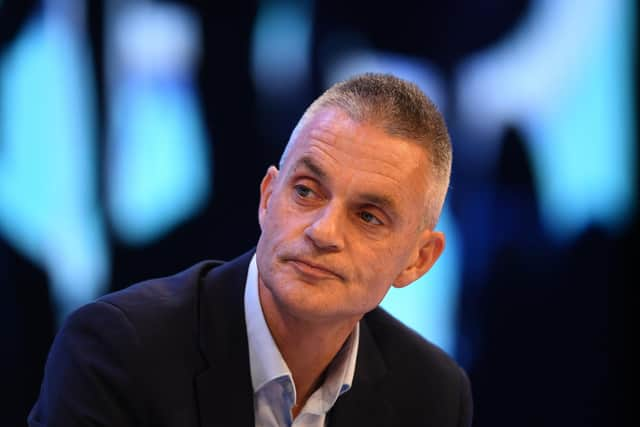Why is BBC Two only showing two non-repeats on Christmas Day? - David Behrens
Eight years from now, according to plan, television transmissions as we know them will be switched off in favour of services we will have to access via the internet. So the rooftop aerials that have dotted the skyline since the last coronation will finally become obsolete.
But good luck trying to watch EastEnders if you live somewhere with slow broadband.
Advertisement
Hide AdAdvertisement
Hide AdIt was Tim Davie, the BBC’s newish director-general, who announced earlier this month the intention to turn off the transmitters at Emley Moor, Pontop Pike and the others whose names are etched in broadcasting history. They cost a fortune to run, that’s the problem, and fewer of us use them – though try telling that to the irate viewers in North Yorkshire whose mast burned down a year and a half ago.


Davie waxed lyrical about his plans to the Royal Television Society. “Imagine a world that is internet only, where broadcast TV and radio are being switched off and choice is infinite,” he told them. But we don’t have to imagine – that world is already here. The question is whether the BBC can catch up with it.
A lesson from its recent past demonstrates the folly of trying to tell the audience which technology they should discard for the convenience of engineers and accountants – for had those factions held sway, radio as we know it would have closed down seven years ago.
That was when the Government planned to begin turning off FM in favour of digital transmissions to expensive and unreliable DAB receivers. But in 2018, three years after the deadline had passed, the BBC quietly announced it had shelved the idea. FM would always be needed to keep listeners on side, it admitted – especially those in cars, who had no other source of reception.
Advertisement
Hide AdAdvertisement
Hide AdCritics had already told them that. DAB, as deployed by BBC engineers, was a system almost unique to the UK and one that was itself being supplanted by newer and better alternatives.
The next few years will prove that terrestrial TV is also far from redundant – and not just because so many of the programmes on offer are older than the internet.
BBC Two is particularly aptly named this year because two is the number of non-repeats its Christmas Day schedule contains: a new interpretation of Tchaikovsky’s Nutcracker and a documentary about Tina Turner visiting Britain.
I’m not saying those are without interest – after all, I remember being in the audience at the Harrogate Conference Centre when Ms Turner pitched up there in 1984 – but two new programmes among the 20 in that day’s schedule is a pretty poor showing for what used to be the most important day of the TV year.
Advertisement
Hide AdAdvertisement
Hide AdIt’s as if the BBC is trying to run down its second channel eight years ahead of schedule. And what does it say about the way the service is financed? We can’t be expected to shell out for a TV licence if television itself is to play second fiddle to the internet – a service we pay someone else for already.
The inevitability of submitting to a new funding model is perhaps why the BBC made relatively little of its centenary last month. It seemed to be drawing a line under an operation it knew was unsustainable.
It had known it for years. When it was less than half a century old its head of drama, Sydney Newman, told an interviewer that the problem with an organisation of that size was eliminating the organisation itself. In other words, there were more people getting in the way of programmes than actually making them.
Newman invented Doctor Who. He was one of the BBC’s most influential creative forces – but even in his day creativity came second to administration. And the balance has been thrown further off kilter with every passing decade.
Advertisement
Hide AdAdvertisement
Hide AdYet creativity is all we really want from the BBC, and the presence in BBC One’s festive schedule of favourites like Call the Midwife and Mrs Brown’s Boys – they’re not my favourites but they must be someone’s – demonstrate that television is not the spent medium that the director-general imagines.
The box in the living room will be at its most relevant at 3pm on Christmas Day when a 10-minute ceasefire is called in the family arguments and we settle down to watch the first speech by our outspoken new King. And if the Corporation really wants to sever that link between him and his people, I imagine he will have something to say about it.